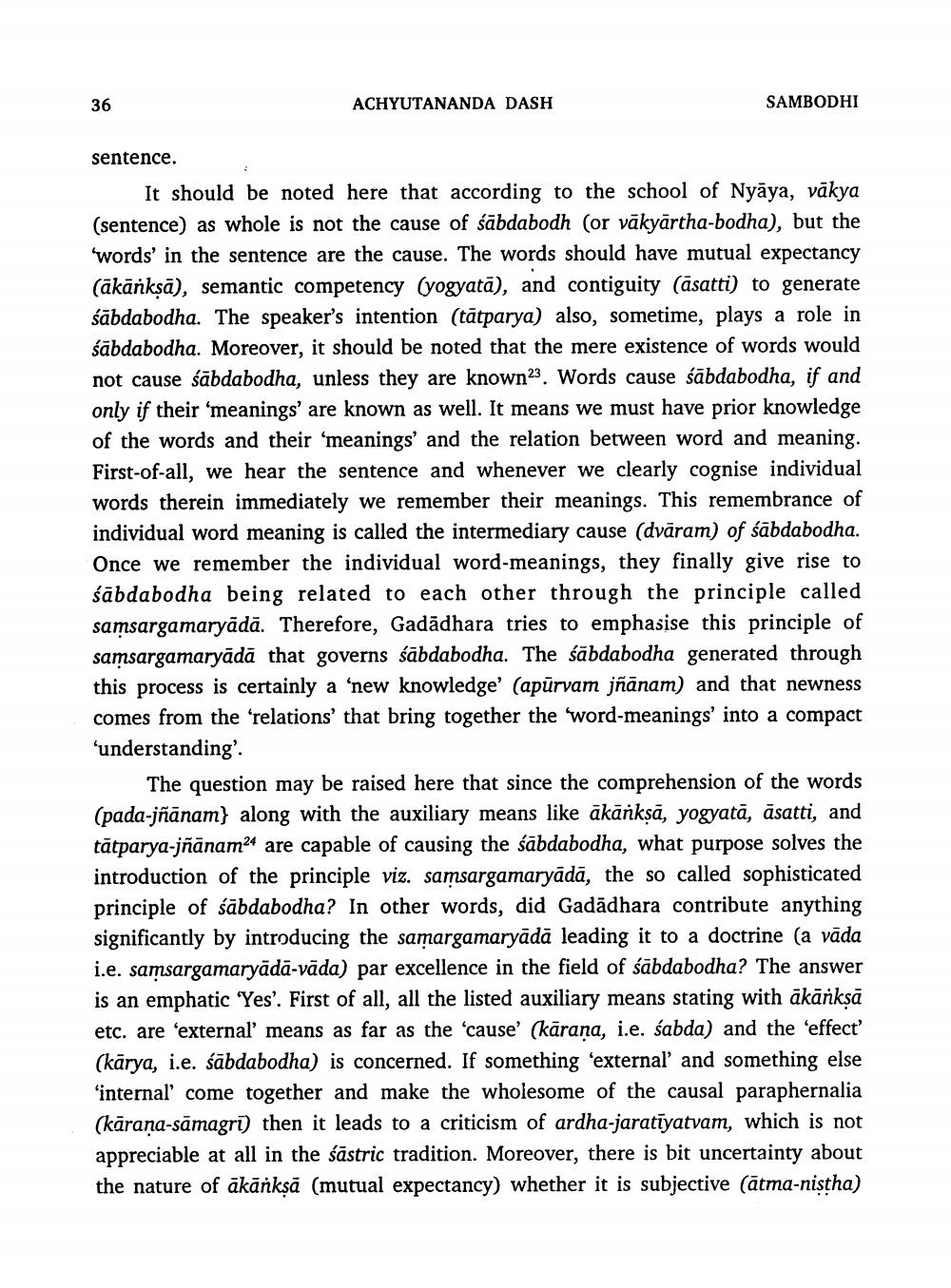________________
36
ACHYUTANANDA DASH
SAMBODHI
sentence.
It should be noted here that according to the school of Nyāya, vākya (sentence) as whole is not the cause of śābdabodh (or vākyārtha-bodha), but the words' in the sentence are the cause. The words should have mutual expectancy (ākānksā), semantic competency (yogyatā), and contiguity (āsatti) to generate śābdabodha. The speaker's intention (tātparya) also, sometime, plays a role in śābdabodha. Moreover, it should be noted that the mere existence of words would not cause śābdabodha, unless they are known23. Words cause śābdabodha, if and only if their meanings are known as well. It means we must have prior knowledge of the words and their 'meanings and the relation between word and meaning. First-of-all, we hear the sentence and whenever we clearly cognise individual words therein immediately we remember their meanings. This remembrance of individual word meaning is called the intermediary cause (dvāram) of sabdabodha. Once we remember the individual word-meanings, they finally give rise to śābdabodha being related to each other through the principle called samsargamaryādā. Therefore, Gadādhara tries to emphasise this principle of samsargamaryādā that governs sābdabodha. The śābdabodha generated through this process is certainly a 'new knowledge' (apūrvam jñānam) and that newness comes from the relations that bring together the word-meanings' into a compact ‘understanding'
The question may be raised here that since the comprehension of the words (pada-jñānam} along with the auxiliary means like ākānkṣā, yogyatā, āsatti, and tātparya-jñānam24 are capable of causing the sābdabodha, what purpose solves the introduction of the principle viz. samsargamaryādā, the so called sophisticated principle of śābdabodha? In other words, did Gadādhara contribute anything significantly by introducing the samargamaryādā leading it to a doctrine (a vāda i.e. samsargamaryādā-vāda) par excellence in the field of sabdabodha? The answer is an emphatic 'Yes'. First of all, all the listed auxiliary means stating with ākānksā etc. are 'external' means as far as the 'cause' (kārana, i.e. sabda) and the effect (kārya, i.e. sābdabodha) is concerned. If something 'external and something else 'internal come together and make the wholesome of the causal paraphernalia (kārana-sāmagrī) then it leads to a criticism of ardha-jaratiyatvam, which is not appreciable at all in the śāstric tradition. Moreover, there is bit uncertainty about the nature of ākānksā (mutual expectancy) whether it is subjective (atma-nistha)




